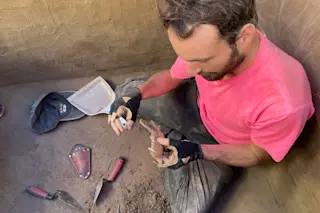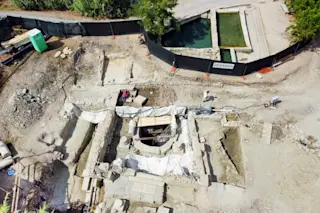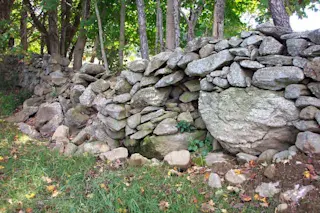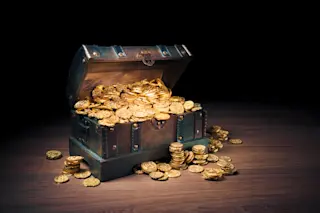An archaeologist discovers a very curious thing:
It appears that electronic buying and selling has actually hurt the antiquities trade.
How can this be?
The short answer is that many of the primary "producers" of the objects have shifted from looting sites to faking antiquities. I've been tracking eBay antiquities for years now, and from what I can tell, this shift began around 2000, about five years after eBay was established.
What's remarkable about this trend is not just the dampening effect on pothunting (one hopes), but that experts are having an increasingly harder time detecting genuine artifacts from the fakes.













